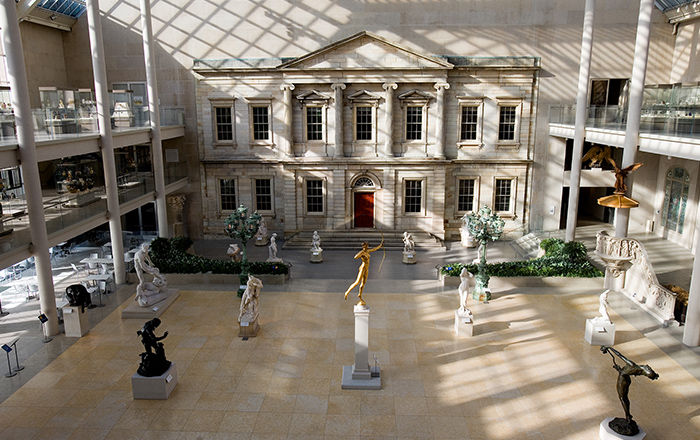Returned to lender The Met accepts temporary loans of art both for short-term exhibitions and for long-term display in its galleries.
Sponge Fishermen, Bahamas
Winslow Homer American
Not on view
In the late nineteenth century, sponging was the main industry of the Bahamas. At its peak around 1900, about one-third of the total male Bahamian workforce was employed in the business, which exported over a million pounds of sponges per year, mainly to North America and Europe as popular bath items. Homer presents a distant view, likely of the Nassau Sponge Exchange, the epicenter of the islands’ trade. As Black fishermen return to port after an expedition, the White merchants survey the bountiful harvest from the dock. Homer’s sunlit composition, which takes place under brilliant blue skies and towering palms, is picturesque rather than critical and reveals no hint of the arduous conditions and meager wages.
Due to rights restrictions, this image cannot be enlarged, viewed at full screen, or downloaded.

